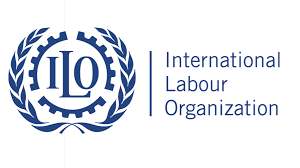ILO says tourism can be significant stepping stone for region’s workers but only if well-regulated and sustainably developed
BRIDGETOWN, BARBADOS — Tourism is a multifaceted industry with the potential to elevate even the most marginalized worker to high-earning positions, but it needs sustainable development if it is to achieve its full potential in the aftermath of COVID-19.
The pandemic’s devastating impact on the region’s top industry has been widely documented and reported on, and although economic diversification has become a major goal for many Caribbean nations, the tourism sector is expected to continue being a significant driver for GDP in the foreseeable future.

The International Labour Organization (ILO).
Given its importance, the International Labour Organization (ILO) recently convened a technical meeting on sustainable tourism recovery, bringing together “representatives from 86 governments, 12 employers, 22 workers, as well as 10 representatives from international governmental and non-governmental organizations”.
“The technical meeting…stressed the importance of policies and measures that focus on tourism recovery that is inclusive, sustainable and resilient,” the ILO noted.
“Priorities should include support for a just transition towards formality in the tourism sector, the promotion of decent jobs and sustainable enterprises, measures to ensure adequate protection for all workers and improving the sector’s preparedness for future crises.”
Sustainable tourism development
Notwithstanding tourism’s lucrative nature and the potential it creates for countless citizens to achieve great heights, the industry needs to be developed in a sustainable way or else face labour shortages and exacerbate inequalities among vulnerable populations.

A hospitality worker.
According to the ILO, “Globally, although differences between regions exist, the sector continues to face decent work deficits, such as the prevalence of informality, variable and long working hours, low wages, limited access to social protection, gender-based discrimination, poor occupational safety and health (OSH) practices and weak regulation, enforcement and organization of labour.
“In some cases, the sector is also affected by the lack of an enabling environment for sustainable enterprise development, insufficient and inadequately skilled workforce and productivity challenges.”
The organization noted, “Increasingly, tourism has many forms of work, such as seasonal and part-time work, fixed-term contracts, working through private employment agencies, outsourcing and subcontracting, [which] can offer a stepping stone to employment, especially for workers who face higher barriers on the labour market such as young, low-skilled and migrant workers.”
It stressed that when these forms of work are “well-designed and regulated, and negotiated through social dialogue and collective bargaining, they assist tourism enterprises’ adaptability, development and growth [and] increase labour force participation and offer opportunities for work–life balance for tourism workers, while ensuring that these work arrangements provide for decent work and are conducive to full, productive and freely chosen employment”.
Find the latest jobs in the Caribbean via Caribbean Employment Services Inc.
References:
International Labour Organization (ILO) Technical meeting on COVID-19 and sustainable recovery in the tourism sector











[…] said this is particularly so for housing developments in tourist hotspots, with the idea in mind being to cut down on tourism workers’ commute since […]
I was pretty pleased to discover this great site. I need to to thank you for your time for this particularly fantastic read!! I definitely appreciated every part of it and I have you book marked to see new stuff on your blog
[…] the IMF emphasized a need for a more sustainable tourism model in the Caribbean going forward, it nonetheless highlighted the potential for formal jobs now […]
[…] on economic diversification among many Caribbean nations. This aimed to help make Caribbean jobs more resilient to external shocks, and ensure workers could continue to earn a decent […]